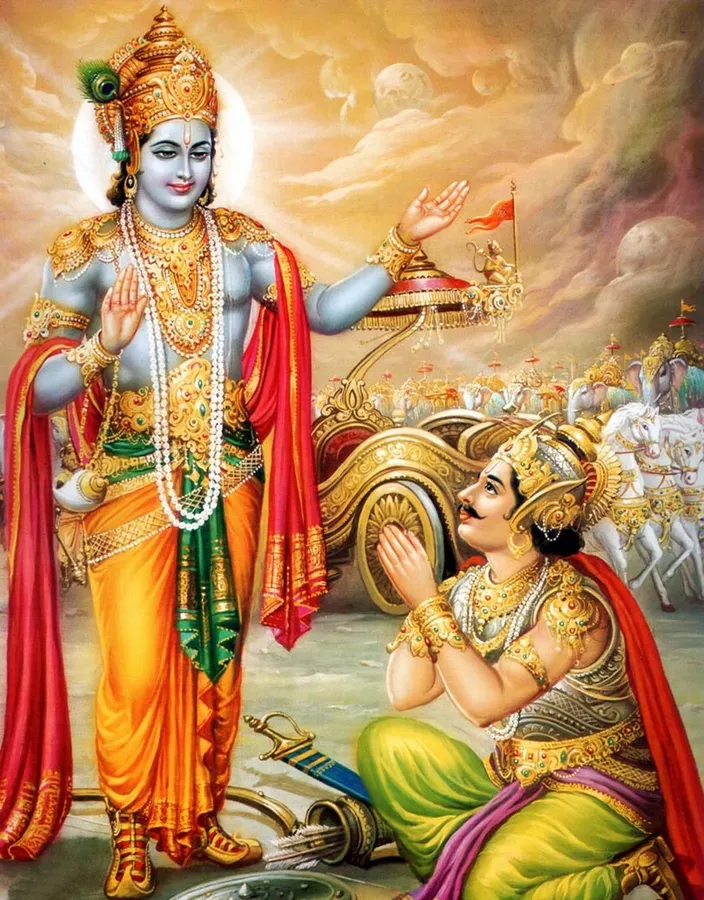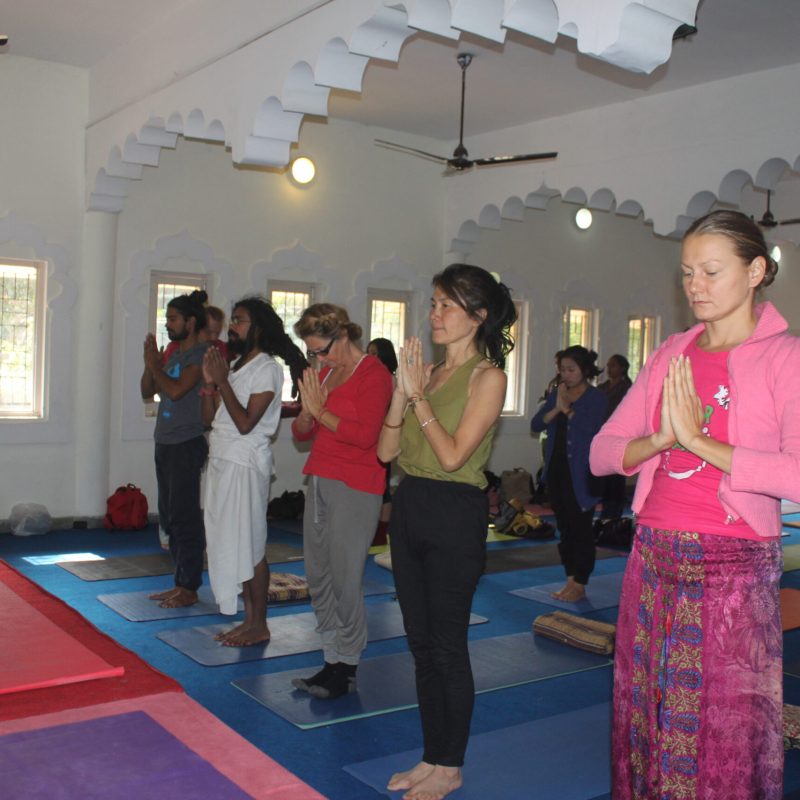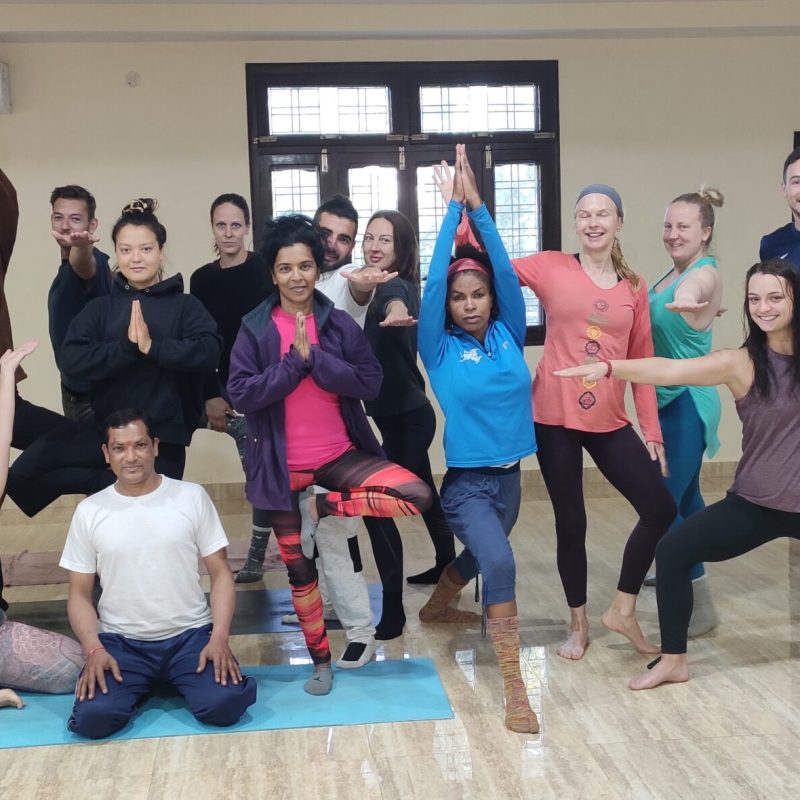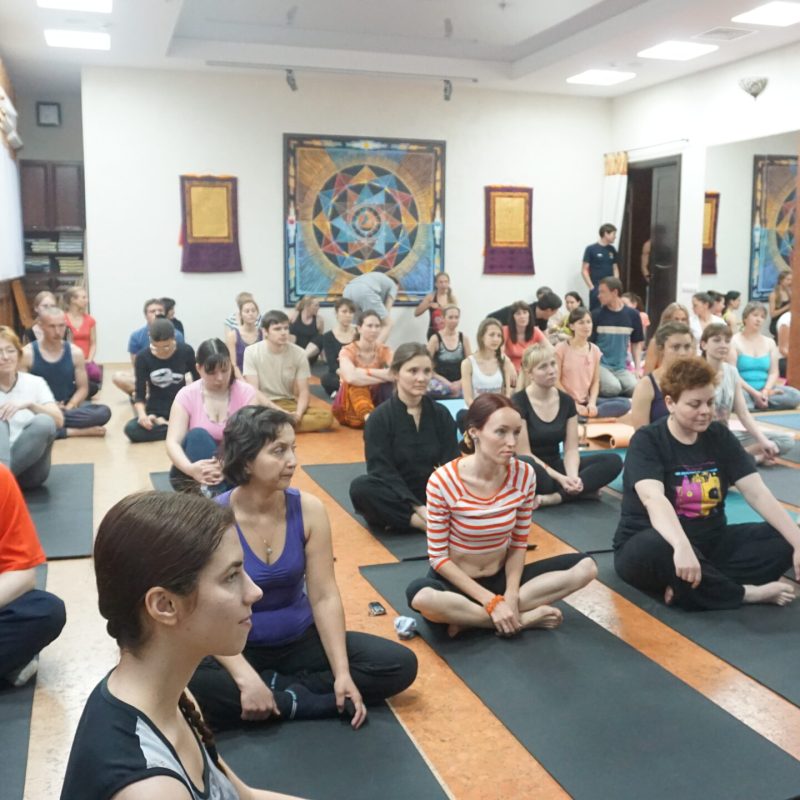"Understanding Karma Yoga: The Path of Selfless Action"
Soham Yoga School Rishikesh, India
Karma: The Cycle of Life and Beyond
Karma Yoga, as outlined in Hindu scriptures, particularly the Bhagavad Gita, is a spiritual practice emphasizing selfless action and duty without attachment to outcomes. This path is crucial for spiritual evolution and liberation, integrating seamlessly into the broader framework of karma and reincarnation. Below, we delve into the profound teachings of Karma Yoga through key verses from the Bhagavad Gita and explore the intricate types of karma that shape our lives and destinies.
The Bhagavad Gita on Karma Yoga
Verse 2.47 (Karmanye Vadhikaraste)
“karmanye vadhikaraste ma phaleshu kadachana, ma karma phala hetur bhurmatey sangostva akarmani”
Translation: “You have a right to perform your prescribed duties, but you are not entitled to the fruits of your actions. Never consider yourself the cause of the results of your activities, nor be attached to inaction.”
Interpretation: This verse encapsulates the essence of Karma Yoga—focusing on one’s duties without attachment to the results. It teaches the importance of action and discourages idleness and fixation on outcomes.
Verse 3.9 (Yajnarthat Karmano ‘Nyatra)
“yajnarthat karmano ‘nyatra loko ‘yam karma-bandhanah, tad-artham karma kaunteya mukta-sangah samachara”
Translation: “Work done as a sacrifice for Vishnu has to be performed, otherwise work causes bondage in this material world. Therefore, O son of Kunti, perform your prescribed duties for His satisfaction, and in that way, you will always remain free from bondage.”
Interpretation: This verse underscores the importance of performing actions as a form of worship or sacrifice (Yajna) to the divine, which leads to liberation from the cycle of karma and rebirth.
Verse 3.19 (Tasmad Asaktah Satatam)
“tasmad asaktah satatam karyam karma samachara, asakto hy acharan karma param apnoti purushah”
Translation: “Therefore, without being attached to the fruits of activities, one should act as a matter of duty, for by working without attachment one attains the Supreme.”
Interpretation: This verse advises performing duties without attachment, emphasizing that such an approach leads to the highest spiritual realization.
Verse 3.30 (Mayi Sarvani Karmani)
“mayi sarvani karmani sannyasyadhyatma-cetasa, nirashi nirmamo bhutva yudhyasva vigata-jvarah”
Translation: “Therefore, O Arjuna, surrendering all your works unto Me, with mind intent on the Self, free from desire and selfishness, and with your mental grief departed, fight.”
Interpretation: Here, Krishna advises Arjuna to surrender all actions to the divine, perform duties with a focused mind, and be free from personal desires and ego.





Types of Karma
Sanchita Karma
Definition: Sanchita karma is the accumulated karma from all past lifetimes, including all actions and deeds performed in previous lives that have yet to bear fruit. Characteristics:
- It is like a reservoir of karmic seeds stored from countless previous lives.
- Only a portion of Sanchita karma is carried over to influence an individual’s current life, which becomes Prarabdha karma.
Prarabdha Karma
Definition: Prarabdha karma is the portion of Sanchita karma that has started to manifest in the present life. It determines the experiences and situations one faces in this lifetime. Characteristics:
- It is the karma that is already ripe and is responsible for one’s current circumstances, including birth, family, health, and major life events.
- Prarabdha karma must be exhausted in the present life and cannot be avoided or changed.
Kriyamana (Agami) Karma
Definition: Kriyamana karma, also known as Agami karma, refers to the actions and deeds performed in the present life. These are the new karmas being created in the current moment. Characteristics:
- It includes all voluntary actions and decisions made in the present.
- Kriyamana karma contributes to future Sanchita karma and can influence future births and experiences.
Aagami Karma
Definition: Aagami karma refers to the karma that will be created by the actions performed in the present life but which will bear fruit in future lives. Characteristics:
- It is essentially a subset of Kriyamana karma that impacts future incarnations.
- The results of Aagami karma will be experienced in subsequent lifetimes.
Subcategories of Karma
Sukarma (Good Karma)
Definition: Sukarma refers to positive, virtuous actions that lead to beneficial outcomes. Characteristics:
- Actions performed with good intentions, compassion, and selflessness.
- Leads to positive consequences and favorable experiences in the future.
Vikarma (Bad Karma)
Definition: Vikarma refers to negative, immoral actions that lead to harmful outcomes. Characteristics:
- Actions performed with ill intentions, selfishness, or harm to others.
- Leads to negative consequences and unfavorable experiences in the future.
Akarma (Neutral Karma)
Definition: Akarma refers to actions performed without any attachment to the fruits and with a sense of detachment. Characteristics:
- Actions done as a duty, without personal gain or loss.
- Typically, actions performed with a selfless and detached mindset, often seen as spiritually liberating.
Philosophical Implications
Karma and Reincarnation
The concept of karma is closely linked with the cycle of samsara (reincarnation). Actions in past lives influence the conditions of the present life, and actions in the present life will shape future lives.
Liberation (Moksha)
The ultimate goal in Hindu philosophy is to break free from the cycle of karma and rebirth (samsara) and achieve moksha (liberation). Karma Yoga, as discussed earlier, involves performing selfless actions and duties to purify the mind and eventually transcend the cycle of karma.
Summary
Karma in Hindu philosophy is a comprehensive system of action and consequence that governs the cycle of life and rebirth. The primary types of karma—Sanchita, Prarabdha, Kriyamana (Agami), and Aagami—describe the accumulation, manifestation, and creation of karmic results. Additionally, karma can be categorized based on its moral quality into Sukarma (good karma), Vikarma (bad karma), and Akarma (neutral karma). Understanding these types helps individuals navigate their spiritual path and work towards liberation.





100 Hour Yoga Teacher Training in Rishikesh (India)
Duration: 14 Days
Module: Residential with Meal
Accommodation: Shared Room
Certification: Yoga Alliance USA
Course Fee: 699 USD
Yoga Style: Hatha Yoga

200 Hour Yoga Teacher Training in Rishikesh (India)
Duration: 25 Days
Module: Residential with Meal
Accommodation: Shared Room
Certification: Yoga Alliance USA
Course Fee: 999 USD
Yoga Style: Hatha Yoga

300 Hour Yoga Teacher Training in Rishikesh (India)
Duration: 28 Days
Module: Residential with Meal
Accommodation: Shared Room
Certification: Yoga Alliance USA
Course Fee: 1349 USD
Yoga Style: Hatha Yoga

500 Hour Yoga Teacher Training in Rishikesh (India)
Duration: 55 Days
Module: Residential with Meal
Accommodation: Shared Room
Certification: Yoga Alliance USA
Course Fee: 2699 USD
Yoga Style: Hatha Yoga

07 Days Yoga Retreats in Rishikesh (India)
Duration: 07 Days
Module: Residential with Meal
Accommodation: Shared Room
Certification: Yoga School
Course Fee: 499 USD
Style: Yoga Retreats

10 Days Yoga Retreats in Rishikesh (India)
Duration: 10 Days
Module: Residential with Meal
Accommodation: Shared Room
Certification: Yoga School
Course Fee: 649 USD
Style: Yoga Retreats

Nestled in Rishikesh, Soham Yoga School offers Yoga Alliance certified teacher training programs in Hatha and Ashtanga yoga styles. Emphasizing meditation, pranayama, “and” yoga philosophy, each course—from “100” to “500” hours—promises deep learning “and” personal growth. With comfortable accommodation “and” nutritious meals, graduates gain internationally recognized certifications “and” profound yoga knowledge.
